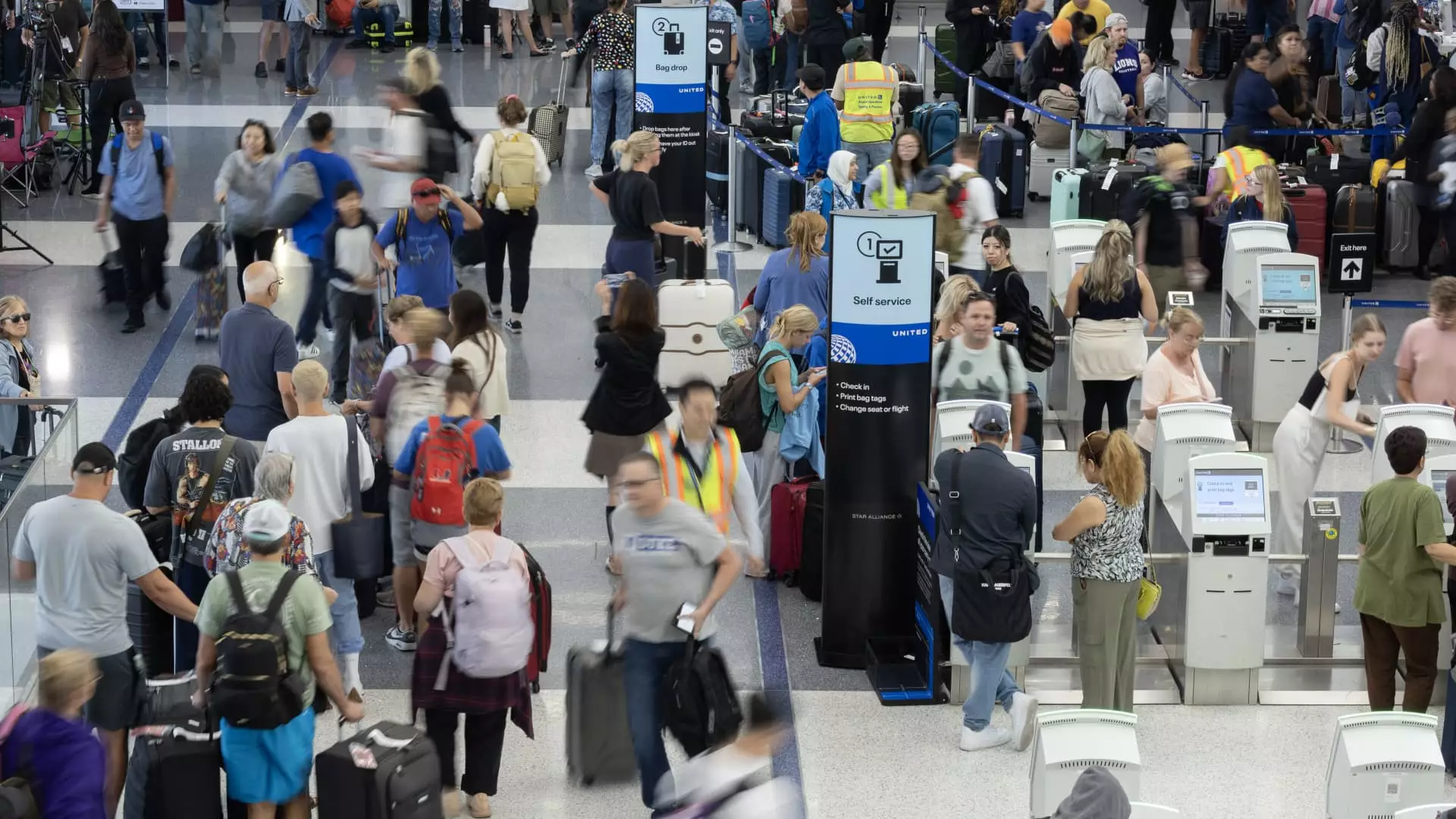The airline industry faced unprecedented disturbances over the weekend as a significant global IT malfunction triggered widespread flight cancellations and delays. On Saturday, airlines managed to organize a recovery, but the effects from the previous day were still palpable. According to flight-tracking services, more than 1,200 flights were called off, predominantly in the United States, where over 900 flights faced cancellations. The debacle began the day prior, marking a catastrophic day for air travel, with more than 5,000 flights canceled globally, impacting approximately 3,400 within U.S. airspace alone. In addition, over 12,000 flights were subjected to delays throughout the country.
The root of this chaos can be traced back to a software mishap orchestrated by CrowdStrike, which inadvertently caused a critical outage within Microsoft systems. This tech hiccup, which many experts are deeming one of the most disruptive technology failures in recent history, did not merely affect airlines; it resonated across multiple sectors. Unlike natural calamities, such as severe weather events, this outage caught airlines off guard, leaving them ill-prepared to handle the ensuing catastrophe. The lack of preparedness mirrored the chaos experienced during extreme weather conditions like winter storms, but the airlines were forced to deal with the aftermath without the luxury of advance warning.
In the wake of this crisis, airlines swiftly mobilized efforts to reinstate order and ensure customer safety. United Airlines, one of the carriers hit hard by the outage, issued a statement from COO Toby Enqvist expressing pride in the team’s efforts to restore operations. With approximately 7% of its flights canceled on Saturday— a marked reduction from the staggering 22% of flights that had to be scrapped on Friday—United Airlines demonstrated resilience. Similarly, Delta Air Lines experienced a turnaround, cutting cancellations from about 31% to roughly 10% by Saturday.
To mitigate customer dissatisfaction, airlines implemented measures to ease the burden on affected passengers. Many airlines waived fare differences and additional fees for those forced into rearranging their travel plans. This move not only underscored the airlines’ commitment to customer service but also set a precedent for handling technology-induced disruptions. As airlines grappling with the immediate effects now focus on a near-normal operation, the emphasis on aiding customers conveys an essential understanding that today’s travelers expect support during unforeseen challenges.
The weekend’s recovery highlights the airlines’ resilience and ability to adapt quickly in the face of adversity. While the chaos caused by the IT outage serves as a sobering reminder of the vulnerabilities inherent in modern technology, it also illustrates the power of collaboration and determination within the airline industry. Moving forward, stakeholders must reevaluate their reliance on technology, ensuring they develop robust contingency plans for future incidents. As airlines continue to work through the remnants of this travel turmoil, the focus will undoubtedly shift towards rebuilding trust and enhancing operational resilience for the seasons to come.


Leave a Reply